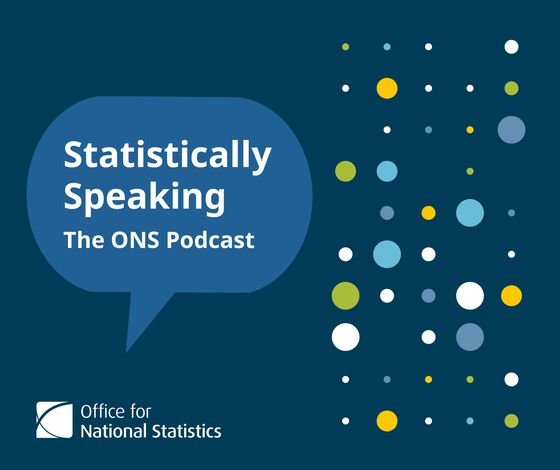They may be based on huge datasets calculated with the most robust methodologies, but nearly all important statistics are actually an ‘estimate’ – a statistical judgement that is subject to some degree of uncertainty.
So how should statisticians best communicate that uncertainty while still maintaining trust in the statistics themselves?
That is the question at the heart of the first episode in a brand new season of ‘Statistically Speaking’, the official podcast of the Office for National Statistics (ONS).
Joining podcast host Miles Fletcher to discuss is Sir Robert Chote, Chair of the UK Statistics Authority; Dr Craig McLaren, Head of National Accounts at the ONS; and Professor Mairi Spowage, director of the renowned Fraser of Allander Institute at the University of Strathclyde.
“It’s important to be aware of the uncertainty,” says Sir Robert. “It’s important when you’re presenting and publishing statistics to help people engage with that, because if you are making decisions based on statistics, or if you’re simply trying to gain an understanding of what’s going on in the economy or society, you shouldn’t be betting the farm on the assumption that any particular number is going to be right to decimal places.”
“Explaining uncertainty to users is really important,” agrees Mairi Spowage. “In my view, and certainly in research that some of my colleagues at the Economic Statistics Centre of Excellence have done, it actually increases confidence in statistics.”
Economic statistics are always high on the news agenda and Craig McLaren helps the team dive into the production of GDP figures at the ONS, talking about the reliability and timeliness of that data, along with the revisions process.
Explaining how the impact of the pandemic had affected the degree of uncertainty in that data, he says: “It was very important to reflect the fact that our estimates at the time would perhaps be revised more than we would typically expect to happen. So in our communication our phrasing, and use of the term ‘estimate’, for example, became incredibly important.”
You can listen to the full podcast episode here.
